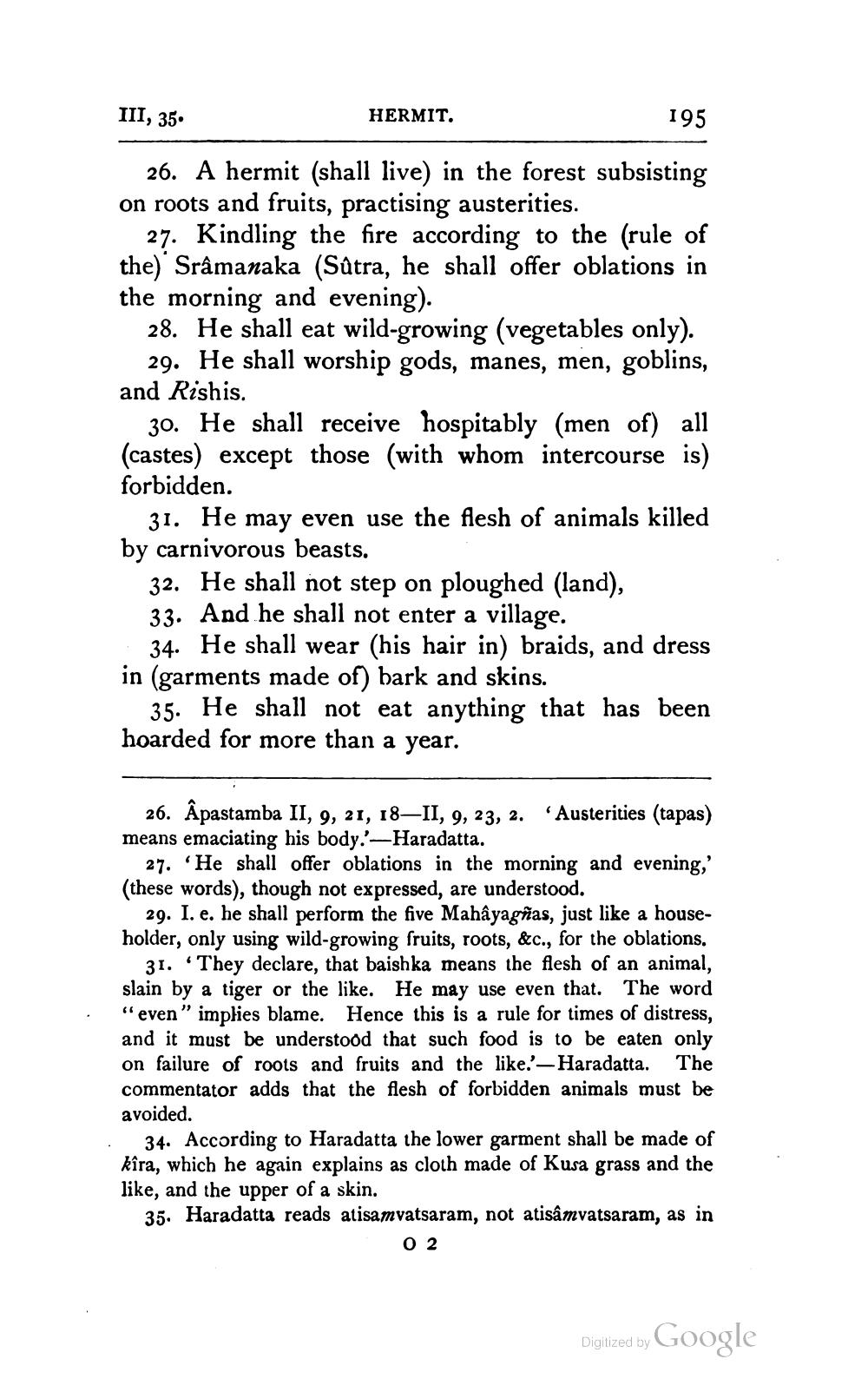________________
HERMIT.
III, 35.
195 26. A hermit (shall live) in the forest subsisting on roots and fruits, practising austerities.
27. Kindling the fire according to the (rule of the) Srâmanaka (Sûtra, he shall offer oblations in the morning and evening).
and evening). 28. He shall eat wild-growing (vegetables only).
29. He shall worship gods, manes, men, goblins, and Rishis.
30. He shall receive hospitably (men of) all (castes) except those (with whom intercourse is) forbidden.
31. He may even use the flesh of animals killed by carnivorous beasts.
32. He shall not step on ploughed (land), 33. And he shall not enter a village.
34. He shall wear (his hair in) braids, and dress in (garments made of) bark and skins.
35. He shall not eat anything that has been hoarded for more than a year.
26. Âpastamba II, 9, 21, 18—II, 9, 23, 2. 'Austerities (tapas) means emaciating his body.'-Haradatta.
27. 'He shall offer oblations in the morning and evening,' (these words), though not expressed, are understood.
29. I. e. he shall perform the five Mahâyagñas, just like a householder, only using wild-growing fruits, roots, &c., for the oblations.
31. They declare, that baishka means the flesh of an animal, slain by a tiger or the like. He may use even that. The word "even" implies blame. Hence this is a rule for times of distress, and it must be understood that such food is to be eaten only on failure of roots and fruits and the like.'-Haradatta. The commentator adds that the flesh of forbidden animals must be avoided.
34. According to Haradatta the lower garment shall be made of kîra, which he again explains as cloth made of Kusa grass and the like, and the upper of a skin. 35. Haradatta reads atisamvatsaram, not atisamvatsaram, as in
02
Digitized by Google




